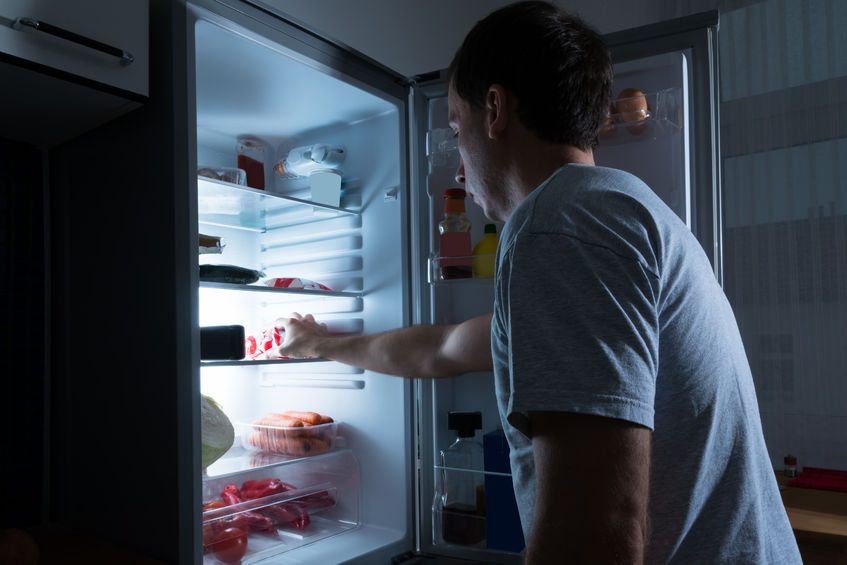It’s a pretty common belief that eating after a certain time in the evening, say 8PM, can hinder weight loss because we move less in the evening and burn even fewer calories when we sleep. Nutrition pioneer Adele Davis once famously said: “Eat breakfast like a king, lunch like a prince and dinner like a pauper.”
But is it really true that eating a late dinner or having a late-night snack will make it more difficult to lose weight or, worse, cause you to gain weight?
Yes and no.
Our bodies require more calories to burn as energy when we’re active and fewer when we are sedentary, so based on that alone, there’s some truth to the logic that eating later in the day can hinder weight loss.
But what matters more than what time of day you eat is how much food (calories) you consume. The basic equation for weight loss is calories in should be less than calories out. If staying out of the kitchen after 8PM helps you cut the overall number of calories you consume in a day, then that’s a strategy worth trying. A calorie is a calorie no matter the time of day. The calories you consume after a certain time don’t weigh more than those you consume earlier in the day.
According to the U.S. Department of Agriculture’s Weight Control Information Network, “it does not matter what time of day you eat. It is what and how much you eat and how much physical activity you do during the day that determines whether you gain, lose or maintain your weight.”
That being said, there are other reasons you may want to avoid the kitchen at night. Oftentimes, people who eat late at night aren’t doing so because they’re hungry, but because they’re bored, restless or stressed. Eating for any of these reasons (again, no matter what time of day) can make it more difficult to lose weight. Likewise, mindless snacking while sitting in front of the TV or computer can lead to weight gain, as it’s difficult to track how many calories you’re consuming when you’re eating without really thinking about it.
If you tend to get hungry late in the evening before heading to bed, have a light, healthy snack such as a piece of fruit or a 100-calorie snack. Just be sure you plan for it as part of your daily calories.
If losing weight is difficult for you, talk to your doctor and work with a registered dietitian and certified professional trainer who can help you set up a plan for your weight loss success.






